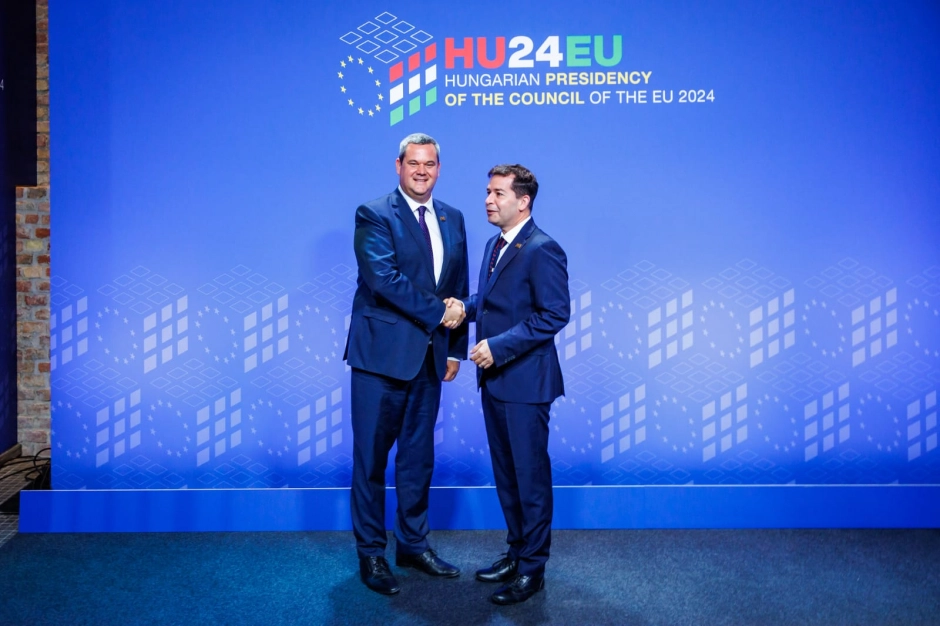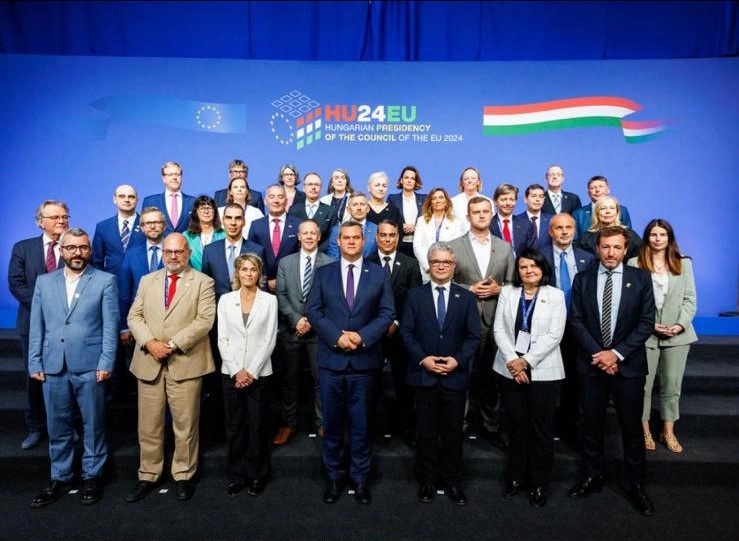Dr Jérôme Weinbach in the EPSCO Council meeting
European Health Union and Global Health: the importance of coordinated transnational actions to save more lives
On 25 July 2024, European health ministers met in Budapest for an informal meeting of the EPSCO Council under the Hungarian Presidency. This was an opportunity to discuss with the European Commission the fight against cardiovascular diseases, as well as organ donation and transplantation.
The health ministers also discussed the next steps to implement the European Health Data Space (EHDS), covering issues ranging from infrastructure to funding. This discussion follows the recent adoption of the regulation (in April 2024, under the Belgian Presidency). The EHDS will be a key pillar of the strong European Health Union and is the first common EU data space in a specific area to emerge from the European strategy for data. It will enable the EU to full benefit from the potential offered by a safe and secure exchange, use and reuse of health data to benefit patients, health professionals, researchers, innovators and health policy makers in the EU. First of its kind worldwide, it has also the potential to inspire the WHO Euro region at large as well as other regions in the world, supporting current thinking on the global digitalisation of health systems.
Dr Jérôme Weinbach, deputy director of European and International Affairs at the French Social Ministries and coordinator of the JA GHI, represented France at this EPSCO meeting.
Cardiovascular health
The first debate focused on cardiovascular health. And with good reason: cardiovascular diseases are the leading cause of death in several Member States of the European Union, responsible for around 1.7 million deaths each year in the Union.
Against this backdrop, it is essential that we rise to the challenges together, with a number of action lines to further strengthen the European Public Health Union and coordination between the Member States, with the Commission and the European agencies: from prevention, diagnosis to treatment and rehabilitation, in an integrated approach to patients.
Organ donation and transplants
The second debate of the day focused on organ donations and transplants. Every year, thousands of patients in the European Union are waiting for a vital transplant.
There is an urgent need for the Member States to work together on an updated strategic and coherento collective approach to reinforce equitable access to transplantation, increase organ donation and availability. Enhanced coordination amongst Members States to improve their capacities in terms of know-how, innovation, safety and the efficiency of procedures, in particular through the use of artificial intelligence for organ-recipient matching, etc. is essential.
This also involves better communication to improve trust and encourage consent for donations.
The European Union has already launched an action plan on organ donation and transplantation (2009-2015). This led to a 21% increase in organ donations. Collective European approach has proven to be effective. Lastly, the new strategy could focus on building trust and improving public perceptions, even though organ donation consent regimes differ between Member States.


Source : French Ministry of Health

